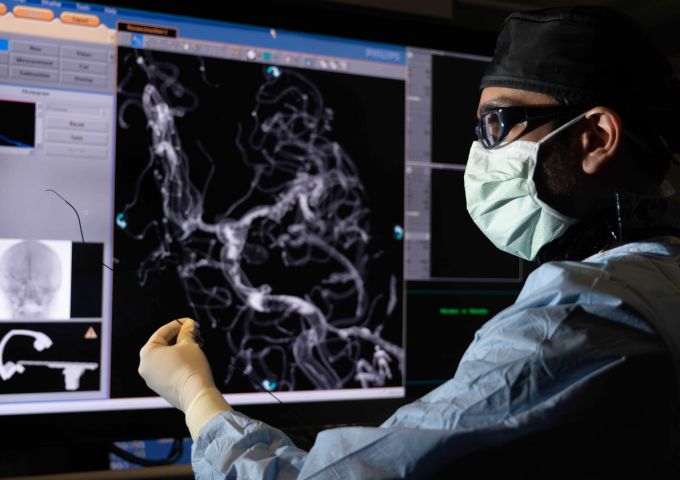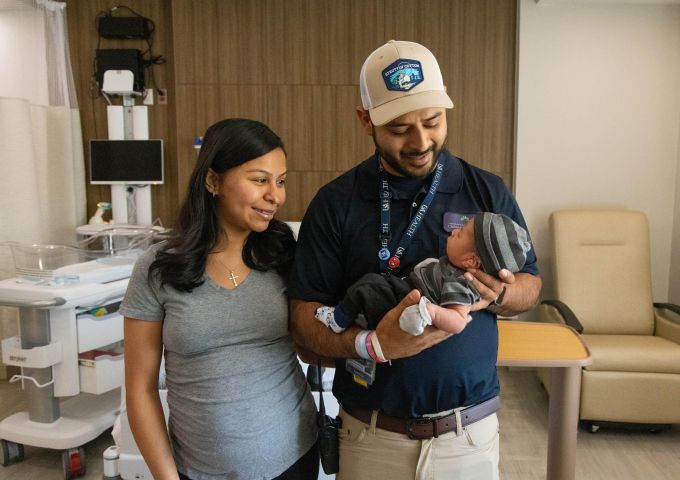
Too many victims of violence end up in our trauma center more than once. See what Andrew Haiflich, R.N., M.S.N., and others are doing to change that.
Andrew Haiflich, R.N., M.S.N., never applied anywhere else.
“I only wanted to work at USA Health because when I was a student, I went around to all the other hospitals, and USA Health is the only academic center in this region. That means we are providing leading care for patients.”
Since 2017, Haiflich has trod the hallways of the emergency department at University Hospital as the Trauma Program Manager of the region’s only Level I Trauma Center.
“To be a Level I Trauma Hospital means you are providing services that other hospitals are not able to provide,” Haiflich explains. “Our OR is able to run 24 hours a day. We have ancillary services, such as neurosurgery and ortho, that are in-house 24 hours a day. Any time of the day something happens to someone, they can come to our hospital and get the care they need.”
This advanced situation makes for an action-packed work environment. To the outsider, it may seem like controlled chaos at times. But for Haiflich, the director of trauma services, quality of care is both a big focus and a source of confidence.
“We maintain quality for our patients through the American College of Surgeons TQIP Program. We’re benchmarked against over 800 hospitals, and we see where we fall amongst the other trauma hospitals across the nation.”
Data about each trauma center case is abstracted into a registry; that means patient privacy is maintained while details about the case are shared with TQIP [Trauma Quality Improvement Program]. The results?
“We are ranked in the top 10% for mortality and complications,” Haiflich reports, “so we know that we are doing a good job. Our data proves that.”
It would be understandable for a hospital to rest on such impressive laurels; that’s not the way Haiflich and others at USA Health see things. Instead, they moved beyond the hallways of the emergency department in an effort to make a positive impact on the health of more people throughout our community.
They worked with the Mobile Police Department, Mobile County Public Schools and state legislators to enact a law that’s an important first step to improving lives.
“Prior to House Bill 280A, Alabama was one of three states that did not have a mandatory reporting law for gun violence.”
Through Project THRIVE—Trauma Healing and Resiliency in the Wake of Violent Events—the bill passed. While the scope of Project THRIVE includes all kinds of trauma, the passage of the mandatory reporting act was especially critical. It’s expected to reduce recidivism, keeping offenders from becoming repeat offenders through intervention, education and other resources. Which means Haiflich is less likely to see victims and perpetrators back in the ER.
The energy it takes to make a long-term impact on our community requires a different way of looking at health. But that’s just what Haiflich and so many others at USA Health possess. And it’s how we’re transforming medicine.






